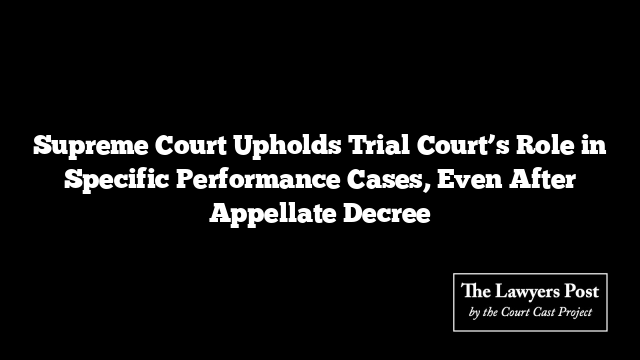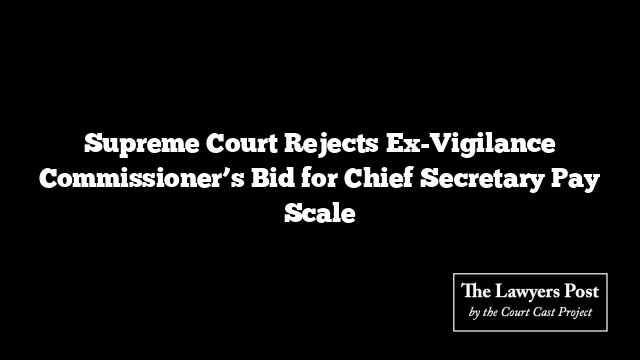In a significant ruling, the Supreme Court reaffirmed that an application under Section 28 of the Specific Relief Act, 1963, can be filed in the trial court, even if the decree for specific performance was issued by an appellate court. This decision underscores the broad interpretation of Section 28, ensuring that the trial court remains a crucial player in execution matters, regardless of the appellate court’s involvement.
Citing past rulings, the Court emphasized that the phrase “may apply in the same suit in which the decree is made,” must be interpreted expansively. This includes allowing the court of first instance (trial court) to handle the execution process, even if the decree was issued by a higher appellate court.
Moreover, the Court clarified that under Section 37 of the Civil Procedure Code (CPC), the term “the court which passed a decree” extends to the trial court in cases where the decree was passed on appeal. The ruling also empowered the Execution Court to grant extensions for buyers to fulfill payment obligations, provided it was the original court that handled the specific performance suit.
A bench comprising Justices JB Pardiwala and Manoj Misra further explained that any application under Section 28(1) of the Specific Relief Act—whether for rescission of a contract or extension of time—must be treated as part of the original suit, rather than a separate execution matter.
The Supreme Court’s ruling came while dismissing an appeal against a decision by the Punjab and Haryana High Court, which had allowed respondents additional time to deposit the balance payment for a property sale. Initially, the trial court had ordered the appellants to refund the respondents’ earnest money, but the appellate court later instructed the appellants to execute the sale deed upon payment of the remaining sum.
When the appellants challenged this directive, they argued that the Execution Court lacked the authority to extend the payment deadline since the decree originated from an appellate court. However, the Supreme Court disagreed, affirming that the Execution Court had jurisdiction and emphasizing that such matters should still be addressed within the framework of the original suit.
In a pointed observation, the Court noted that while the Execution Court might have made procedural missteps by treating the application as an execution matter rather than part of the original suit, this did not warrant interference. The respondents had consistently shown their intent to comply with the agreement, while the appellants had sought multiple appeals to delay the sale’s execution.
Ultimately, the Supreme Court upheld the Execution Court’s decision to grant the extension, concluding that disrupting the current ruling would cause unjust harm to the respondents. This decision further strengthens the role of trial courts in specific performance cases, even in the face of appellate decrees.





